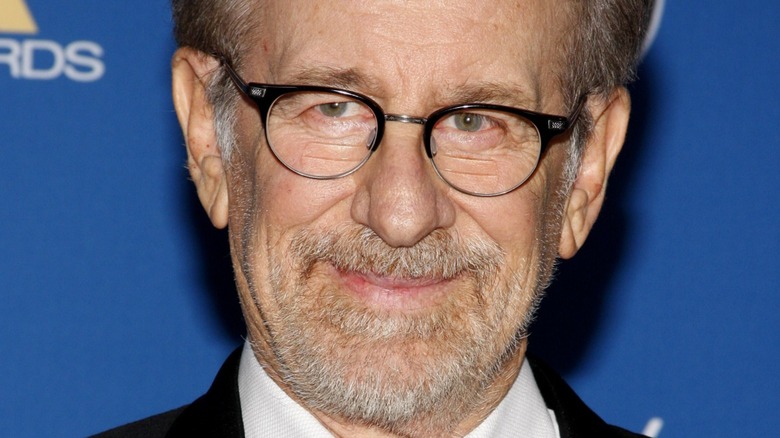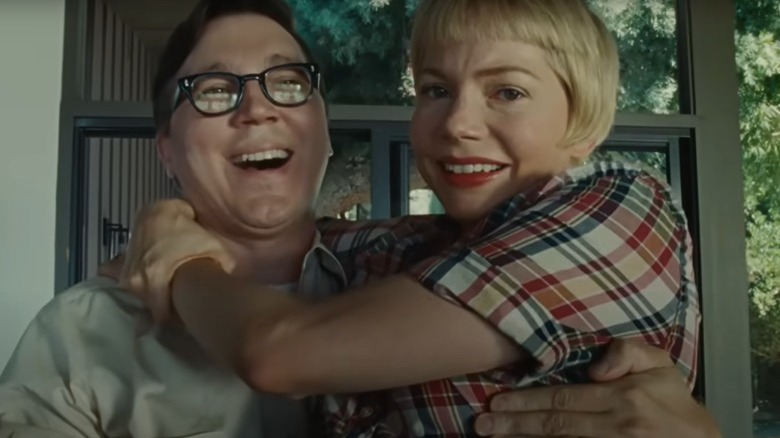Steven Spielberg Hopes Fans Pick Up On The Fabelmans' Life Lesson About Parents
Steven Spielberg has been making one memorable movie after the next for over half a century. His talent, versatility, and meticulous attention to detail have made working with the director rewarding and challenging for his collaborators. Spielberg has applied his storytelling skills to television episodes and films since the earliest days of his career — significant action/adventure blockbusters, heartwarming and emotional fantasies, and searing historical dramas. His ability to easily transition from one genre to the next helped him stand out amongst his peers, and in many ways, he has proved that he can literally do it all, as there are few movie genres the filmmaker has not tackled (via Today).
For such an indomitable artist within popular culture over many decades, it is hard to believe Steven Spielberg's life has not received the biopic treatment. This makes the upcoming "The Fabelmans" all the more compelling since it is a Spielberg-directed, semi-autobiographical account of his pre-Hollywood story. The film follows a fictionalized family in the 1960s and 1970s which mirrors his own, with insights into the filmic imagination of Sammy Fabelman (played at different ages by Mateo Zoryna Francis-Deford and Gabriel LaBelle), whom we can equate to the real filmmaker. An especially important detail about the film that Spielberg hopes fans pick up on is its poignant life lesson about parents.
Steven Spielberg says he hopes The Fabelmans depicts parents as real people
In an interview with The Hollywood Reporter, Steven Spielberg spoke about what inspired "The Fabelmans," as well as his thoughts on the recent passing of his parents Leah and Arnold Spielberg in 2017 and 2020 respectively. Speaking to the publication, Spielberg commented, "My life with my mom and dad taught me a lesson, which I hope this film in a small way imparts ... Which is, when does a young person in a family start to see his parents as human beings? In my case, because of what happened between the ages of 7 and 18, I started to appreciate my mom and dad not as parents but as real people."
The director went on to reveal that his parents were intrigued about their son telling their story along with his own. The filmmaker shared, "They were actually nagging me, 'When are you going to tell that story about our family, Steve?' And so this was something they were very enthusiastic about." The themes of not wanting to grow up, the comforts of childhood, and the realities of loss and regret are all narrative techniques that have defined many of the director's classic movies. But this was never something Steven Spielberg ever felt the need to explore in a direct way concerning his own adolescent experiences — until now.

